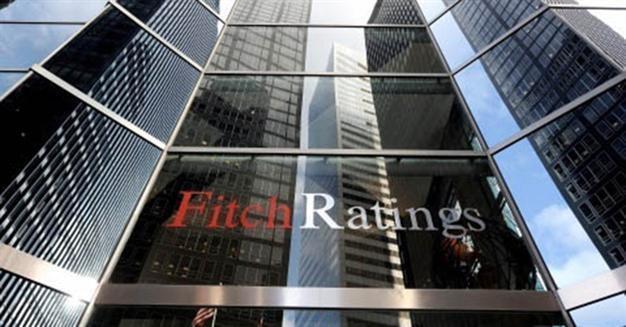Turkey believes Fitch will keep Turkey rating unchanged
ANKARA – Anadolu Agency

International rating agency Fitch might avoid changing its rating for Turkey on Aug. 19, instead leaving the country’s grade at “investible” pending a continued observation of the impacts of the July 15 coup attempt, according to the president of Turkey’s Prime Ministry Investment Support and Promotion Agency (ISPAT).
In February, Fitch confirmed Turkey’s long-term foreign and local currency issuer ratings as “BBB” and “BBB” respectively, with a stable outlook.
Fitch Ratings’ long-term credit ratings are assigned on an alphabetic scale from “AAA” to “D” with the use of +/? modifiers for each category between AA and CCC.
The “BBB” investment grade is defined as middle class and an acceptable risk.
“The issue ratings on Turkey’s senior unsecured foreign and local currency bonds have also been affirmed at ‘BBB-’ and ‘BBB,’ respectively, while the country ceiling has been affirmed at ‘BBB’ and the short-term foreign currency at ‘F3,’” Fitch said in its February statement.
“I expect that Fitch will use more time to be able to assess the impacts of the coup attempt and give a healthy decision on our ratings. For this reason, I expect that the agency will not announce any negative statement for Turkey on Aug. 19,” ISPAT President Arda Ermut told Anadolu Agency, echoing top Turkish officials, including President Recep Tayyip Erdoğan and Deputy Prime Minister Mehmet Şimşek.
Ermut said Fitch was the first institution to rate Turkey as “investible” in November 2012.
He said the government’s decreasing burden of debt, strong and functioning financial system and positive growth expectations supported by stable economic sources were taken into consideration by Fitch in their assessment in 2012.
“Fitch’s previous rating for Turkey was in February 2016, when it secured Turkey’s ratings and outlook. The outcome of this decision was that Turkey preserved its fiscal discipline, despite the elections of 2015, the jet crisis with Russia last November, along with disorder in Iraq and Syria,” Ermut said.
At that time, the agency said the Justice and Development Party’s (AKP) triumph in elections has “eased domestic political uncertainty.”
“Now neither Fitch nor we will ignore the coup attempt, but it is necessary to state that Turkey preserves its fiscal discipline and that there are positive expectations on growth,” he said.
He underlined that the recently passed law to bring in new incentives for investments along with regulations on individual retirement plans were among the developments that Fitch said it would follow.
A law which supports improving the investment climate in Turkey by amending certain regulations was published in the Official Gazette on Aug. 9.
The law encompasses 79 articles, 47 of which are related to tax regulations. The most significant amendments include investment incentives, incentives for service exports, incentives for regional management centers, transfer of pricing regulations, exemption for industrial property rights, incentives for energy savings projects and exemptions on stamp duty in certain cases.
Ermut said Fitch would take all these developments into consideration.
Coup’s economic cost controllable
Ermut said the coup plot would result in costs to the Turkish economy. “However, since Turkey began building its basis on a solid economy since 2002 and diversified its sources, this cost will be controllable.”
 International rating agency Fitch might avoid changing its rating for Turkey on Aug. 19, instead leaving the country’s grade at “investible” pending a continued observation of the impacts of the July 15 coup attempt, according to the president of Turkey’s Prime Ministry Investment Support and Promotion Agency (ISPAT).
International rating agency Fitch might avoid changing its rating for Turkey on Aug. 19, instead leaving the country’s grade at “investible” pending a continued observation of the impacts of the July 15 coup attempt, according to the president of Turkey’s Prime Ministry Investment Support and Promotion Agency (ISPAT).